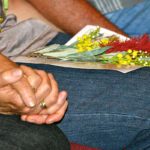Update on the NZ Royal Commission into Historical Abuse in State Care
Guest Post by Belinda Battley
Member, Archives and Records Association of New Zealand
www.aranz.org.nz
In mid-February I represented the Archives and Records Association of New Zealand, ARANZ, at a meeting to provide feedback on the draft terms of reference for the Royal Commission into Historical Abuse in State Care (For more information on the Royal Commission and the draft terms of reference, see: https://www.abuseincare.org.nz/)
Also at the meeting were care-leavers and their advocates, including support groups from New Zealand and Australia, a range of Māori support groups, advocates for disabled people, former social workers, lawyers, academics, advocates for human rights and against racial discrimination, and others. The Chair of the Royal Commission, former Governor-General Sir Anand Satyanand, attended for the entire two days.

The meeting argued the time period (1950 to 1999) should be extended back in time to cover anyone who had been “in care”, and forward as well, as evidence shows abuse is still occurring. There was a strong argument that care-leavers should be amongst the Commissioners, and that Māori rights under the Treaty of Waitangi were a central issue. There was also a strong argument for the terms of reference to expand to include all kinds of out-of-home care situations, no matter who was responsible, including religious institutions, private institutions, scout groups, sports groups, and so on. (And since the meeting, both the Catholic and Anglican churches in New Zealand have asked to be included: https://www.rnz.co.nz/news/national/353367/churches-push-for-inclusion-in-royal-commission-into-abuse).
After the meeting, a formal submission on the Terms of Reference was sent to the Commission Chair. Public submissions have now closed – over 200 had been received with a week remaining. Sir Anand said the main areas of feedback were “the scope and purpose of the Inquiry, a suitable reference to the Treaty of Waitangi, the inquiry timelines and what constitutes “state care”. He also said many told him the inquiry “needs to focus on the ongoing care and wellbeing of survivors and help support them through the process.” The call has now gone out for nominations for Commissioners, and the Terms of Reference will soon be finalised. Once Cabinet has agreed them, they will be Gazetted and the Royal Commission can begin to hear evidence.
At the meeting, we also discussed many of the recordkeeping issues relating to historical and current abuse, and were told these would be part of the inquiry. I hope within the year to have begun developing our own national resource for connecting people who were in care with their own records, thanks to a generous offer from Find & Connect in Australia for technical support in developing this, and to ARANZ for further support. We will need to ensure our own resource fits our unique environment, so we will need to partner with other organisations with expertise in the area, including CLAN NZ. Approximately 60% of children currently in care are Māori, so it is essential that the resource is also a partnership with interested Māori groups from the beginning. It is still early days as the resources to set this up are not yet available, but watch this space…
While you’re here, you can really make a difference to the future of www.findandconnect.gov.au by taking a few minutes to do our site survey. We’ll use your response to design an even better Find & Connect






